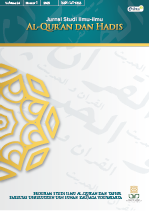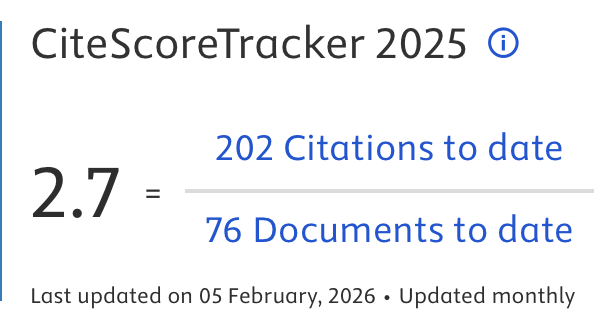Contextualizing Justice in Times of Crisis: A Study of QS. Al-Mā’idah 5:38 and its Application in Criminal Theft Cases
DOI:
https://doi.org/10.14421/qh.v24i1.4047Keywords:
Justice, The Law of Stealing, contextualization, QS Al-Mā’idah 5:38Abstract
The Qur'an is considered a guide for all of humanity, offering valuable insights and guidance that is adaptable to changing circumstances and the challenges of modern life. This paper focuses on the issue of theft in times of emergency, which is an issue of concern for many societies today. In particular, the paper examines the Quranic verse, QS Al-Mā’idah 5:38, which states that men and women who steal are punished by having their hands cut off. The paper employs Abdullah Saeed's interpretation method, which emphasizes the importance of contextualizing Quranic verses in response to contemporary realities. The findings of the study indicate that the verse in question has a universal value in terms of justice, as it seeks to ensure that people's basic rights are protected and fulfilled in order to prevent theft. However, if basic needs are not met and a person is forced to steal in order to survive, it may be permissible to do so, as long as the limits of necessity are not exceeded. The verse also has a temporal nature, as the law of cutting hands can be replaced with alternative punishments, depending on the circumstances. In the Islamic context, this alternative might be ta'zir, while in the Indonesian context, it might involve a restorative justice process. Overall, the paper offers valuable insights into how the Qur'an can be interpreted to address the challenges of modern life, especially in times of emergency. The study highlights the importance of contextualizing Quranic verses in order to respond effectively to changing circumstances, while still upholding the core values of justice and compassion.
References
Aco, Hasanudin. “Ini 9 Bantuan dari Pemerintah Selama Pandemi COVID-19: Ada PKH, BST, hingga Bantuan Pulsa”, dalam https://www.tribunnews.com/nasional/2021/07/22/ini-9-bantuan-dari-pemerintah-selama-pandemi-covid-19-ada-pkh-bst-hingga-bantuan-pulsa diakses pada 12 Januari 2022.
al-Bagawī, Abī Muhammad Ḥusain bin Mas’ūd. Tafsīr al-Bagawī: Ma’ālim at-Tanzīl. Riyadh: Dār Taibah, 1989.
al-Baiḍāwī, ‘Abdullah bin ‘Umar bin Muhammad asy-Syīrāzī. Anwār at-Tanzīl wa Asrār at-Ta`wīl. Beirut: Dār Iḥya at-Turāṡ al-‘Arabi, tt.
al-Marāgī, Aḥmad Muṣṭafā. Tafsīr Al-Marāgī. Mesir: Muṣṭafa al-Bābi al-Ḥalabi, 1946.
Al-Qurṭubī, Ahmad bin Abi Bakr. al-Jāmi’ al-Aḥkām Al-Qur’an wa al-Mubayyin Lamā Taḍammanah min as-Sunnah wa Āyi al-Furqān. Beirut: Muassasah ar-Risālah, 2006.
Amrullah, Abdul Malik Abdul Karim (HAMKA). Tafsir al-Azhar. Singapura: Pustaka Nasional, tt.
an-Naisābūrī, Aḥmad al-Wāḥidī. Asbāb an-Nuzūl. Dammam: Dār Iṣlāḥ, 1407 H.
ash-Shiddieqy, Teungku Muhammad Hasbi. Tafsīr al-Qur’ān al-Majīd an-Nūr. Semarang: Pustaka Rizki Putra, 2000.
-------. Tafsīr al-Qur’ān al-Majīd an-Nūr. Jakarta: Cakrawala Publishing, 2011.
as-Sadlān, Ṣāliḥ Gānim. al-Qawā’id al-Fiqhiyyah al-Kubra wa mā Tafarra ’anhā. Riyadh: Dār Balnasiyah, 1417 H.
asy-Syāfi’ī, Imām Taqiyuddīn Abī Bakr ad-Dimasyqī. Kifāyatu al-Akhyār fī Ḥalli Gāyati al-Ikhtiṣār. Makkah: Dār al-Minhaji, 2016.
asy-Syirāzī, Abū Isḥaq Ibrahim. al-Muhẓab fī Fiqh al-Imām asy-Syāfi’ī. Beirut: Dār al-Kutub al-‘Ilmiyyah, 1995.
at-Ṭabarī, Abu Ja’far Muḥammad bin Jarīr. Jāmi’ al-Bayān ‘an Ta`wīl Āy al-Qur’an: Tafsīr at-Ṭabarī. Beirut: Muassasah ar-Risālah, 1994.
--------. Tafsīr at-Ṭabarī, Terj. Akhmad Affandi. Jakarta: Pustaka Azzam, 2008.
--------.“Tārīkh at-Ṭabarī” dalam https://lib.eshia.ir/22009/2/39.
CT-CAT, “Mengenal Keadilan Restoratif: Tak Semua Perkara Pidana Berujung Bui” dalam https://www.hukumonline.com/berita/a/mengenal-keadilan-restoratif--tak-semua-perkara-pidana-berujung-bui-lt5f6d73902478d/.
Direktori UU RI, https://uu.direktorimu.com/kuhp/buku-kedua/bab-22-pencurian/.
Eficandra, “Maqashid al-Syari’ah: Suatu Kajian Terhadao Ijtihad Ali bin Abi Thalib”, Jurnal Wacana Hukum Islam dan Kemanusiaan 12, no. 1 (2012):37.
Fajri, Muhammad. “Interpretasi Surah Al-Maidah Ayat 38 Analisis Semiotika Michale Riffaterre.” Al-Itqan, 6, no. 2 (2020): 79-80.
Faurī, Al-Burhān. Kanz al-‘Ummāl fī Sunan al-Aqwāl wa al-Af’āl. Beirut: Muassasah ar-Risālah, 2008.
Hitti, Philip K. History of The Arabs, Terj. R. Cecep L. Yasin dan Dedi S. Riyadi. Jakarta: Serambi Ilmu Semesta, 2005.
Ismatulloh, A.M. “Ayat-Ayat Hukum Dalam Pemikiran Mufasir Indonesia (Studi Komparatif Penafsiran M.Hasbi Ashshiddieqi Dan M.Quraish Shihab)” Jurnal Fenomena 6, no. 2 (2014):277.
Jazuli, H.A. Fiqh Jinayah Upaya Menanggulangi Kejahatan dalam Islam. Jakarta: Raja Grafindo Persada, 1997.
Kaṡir, Ibnu. Tafsīr Al-Qur’an al-‘Aẓīm. Riyadh: Mamlakah al-‘Arabiyyah as-Sa’ūdiyyah, 1999.
Lamintang. Dasar-Dasar Hukum Pidana Indonesia. Bandung: Sinar Baru. 1990.
Lesmana, Mufidah dan Zamrud. “Kebijakan Kondisi Darurat Ketatanegaraan Perspektif Kaidah Fiqhiyah” Indonesian Constitutional Law Journal 4, no. 1 (2020):157.
Liputan Media FISIP UI. Kriminalitas Yang Terjadinya Selama Wabah Covid-19, dalam https://fisip.ui.ac.id/pandangan-ketua-departemen-kriminologi-fisip-ui-terkait-kriminalitas-selama-terjadinya-wabah-covid-19/.
Mamluchah, Laila dan Nafi’ Mubarok. “Peningkatan Angka Kejahatan Pencurian Pada Masa Pandemi Dalam Tinjauan Kriminologi Dan Hukum Pidana Islam” al-Jinayah: Jurnal Hukum Pidana Islam 6, no. 1 (2020):9.
Matompo, Osgar S. “Pembatasan Terhadap Hak Asasi Manuisa Dalam Perspektif Keadaan Darurat” Jurnal Media Hukum 21, no. 1 (2014):66-67.
Muchlisin, Annas Rolli. “Penafsiran Kontekstual: Studi Atas Hierarki Nilai Abdullah Saeed” Jurnal Maghza 1, no. 1 (2016):21.
Mukti (ed.), Mukhlis B. Tafsir al-Qurthubi. Jakarta: Pustaka Azzam, 2008.
Muslich, H.A Wardi. “Ayat-Ayat Pidana dalam al-Qur’an” Jurnal al-Qalam 18, no. 91 (2001):52-53.
Qal’ahjī, Muḥammad Ruwās. Mausu’ah Fiqh Abī Bakar aṣ-Ṣidīq. Damasakus: Dār al-Fikr, 1983.
-------. Mausu’ah Fiqh ‘Āli bin Abī Ṭālib. Damasakus: Dār al-Fikr, 1983.
-------. Mausu’ah Fiqh ‘Umar bin Khaṭāb. Damasakus: Dār al-Fikr, 1983.
-------. Mausu’ah Fiqh ‘Uṡmān bin ‘Affān. Damasakus: Dār al-Fikr 1983.
Quṭb, Sayyid. Tafsīr fī Ẓilāli al-Qur’ān. Mesir: Dār asy-Syurūq, tt.
Ridhoi, Muhammad Ahsan. Kriminalitas Meningkat Selama Pandemi Corona, Sebanyak Apa?, dalam https://katadata.co.id/muhammadridhoi/berita/5e9ffbc527b98/kriminalitas-meningkatselama-pandemi-corona-sebanyak-apa.
Saeed, Abdullah. al-Quran Abad 21: Tafsir Kontekstual. Bandung: PT Mizan Pustaka, 2016.
-------. Interpreting The Qur’an: Towards a Contemporary Approach. Terj. Lien Iffah dan Ari Henri dalam Paradigma, Prinsip, dan Metod: Penafsiran Kontekstualis atas al-Qur’an. Bantul: Baitul Hikmah Press, 2015.
-------. Interpreting The Qur’an: Towards a Contemporary Approach. Terj. Lien Iffah dan Ari Henri dalam Paradigma, Prinsip, dan Metod: Penafsiran Kontekstualis atas al-Qur’an. Bantul: Baitul Hikmah Press, 2017.
Ṣaḥīḥ Muslim dalam Aplikasi Maktabah Syāmīlah.
Sahetapy, J.E. Hukum Pidana. Jakarta: Rineka Cipta. 2006.
Shahrur, Muhammad. Naḥw Uṣūl Jadīdah Li al-Fiqh al-Islāmī, Terj. Sahiron Syamsuddin, MA dan Burhanuddin dalam Metodologi Fiqih Islam Kontemporer. Yogyakarta: Elsaq Press, 2004.
Shihab, M. Quraish. Tafsir al-Misbah: Pesan, Kesan, dan Keserasian al-Qur’an. Ciputat: Lentera Hati, 2005.
-------. Tafsir al-Misbah: Pesan, Kesan, dan Keserasian al-Qur’an. Ciputat: Penerbit Lentera Hati, 2011.
Sugiarti, Yayuk. “Kemiskinan sebagai Salah Satu Penyebab Timbulnya Tindak Kejahatan” Jurnal Jendela Hukum Fakultas Hukum UNIJA 6, no. 1 (2014):2.
Sunan al-Kubrā lil Baihaqī dalam Aplikasi Maktabah Syāmīlah.
Sunan an-Nasā’ī dalam Aplikasi Maktabah Syāmīlah.
Ulummudin, “Analisis Penafsiran Terhadap QS al-Māidah ayat 38 dalam Qur’an: a Reformist Translation” Jurnal QOF 3, no. 2 (2019):150.
Wawancara Hasan Hanafi dengan Zuhairi Misrawi. Jurnal Tashwirul Afkar. Edisi X (2001)
Zaelany, Andy Ahmad. Kriminalitas di Era COVID-19 dan Pekerja Muda, dalam https://kependudukan.lipi.go.id/mencatatcovid19/kriminalitas-di-era-covid-19-dan-pekerja-muda/.
Zuhaili, Wahbah. Al-Tafsīr Al-Munīr Fī Al-‘Aqīdah Wa Al-Syarī'ah Wa Al-Manhaj. Damaskus: Dār al-Fikr, 2009.
Downloads
Published
Issue
Section
License
Copyright (c) 2023 Berlian Puji Pangastuti

This work is licensed under a Creative Commons Attribution-NonCommercial-NoDerivatives 4.0 International License.
Publishing your paper with Jurnal Studi Ilmu-ilmu al-Qur'an dan Hadis means that the author or authors retain the copyright in the paper. Jurnal Studi Ilmu-ilmu al-Qur'an dan Hadis uses license CC-BY-NC-ND or an equivalent license as the optimal license for the publication, distribution, use, and reuse of scholarly works. This license permits anyone to copy and redistribute the material in any medium or format and must give appropriate credit, provide a link to the license, and indicate if changes were made. If you remix, translate, transform or build upon the material you may use it for private use only and not for distribution. Jurnal Studi Ilmu-ilmu al-Qur'an dan Hadis granted an exclusive non-commercial reuse license by the author(s), but the author(s) are able to put the paper onto a website, distribute it to colleagues, give it to students, use it in your thesis, etc, so long as the use is not directed at a commercial advantage or toward private monetary gain. The author(s) can reuse the figures and tables and other information contained in their paper published by Jurnal Studi Ilmu-ilmu al-Qur'an dan Hadis in future papers or work without having to ask anyone for permission, provided that the figures, tables, or other information that is included in the new paper or work properly references the published paper as the source of the figures, tables or other information, and the new paper or work is not direct at a private monetary gain or commercial advantage.
Jurnal Studi Ilmu-ilmu al-Qur'an dan Hadis journal Open Acces articles are distrubuted under the Creative Commons Attribution-NonCommercial-NoDerivatives 4.0 International (CC BY-NC-ND 4.0). Article can be read, copy and redistribute the material ini any medium or format under the following conditions:
Attribution — You must give appropriate credit, provide a link to the license, and indicate if changes were made. You may do so in any reasonable manner, but not in any way that suggests the licensor endorses you or your use.
NonCommercial — You may not use the material for commercial purposes.
NoDerivatives — If you remix, transform, or build upon the material, you may not distribute the modified material.











